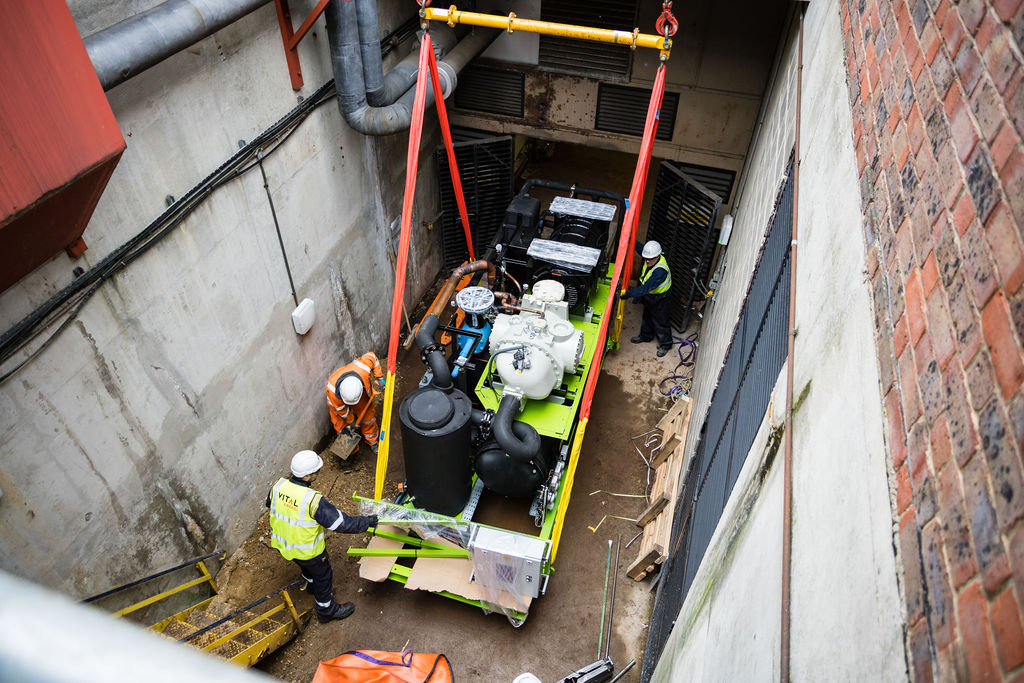Ground source heat pumps (GSHP) take advantage of the relatively constant temperature below ground throughout the seasons, ensuring a predictable source of heat. Whilst they can require a larger initial investment than other sources, their high levels of efficiency make them a popular choice.

Ground source heat pumps extract heat from below ground, whether from soil, rock, or water (also referred to as ground water heat pumps), using either an open or closed loop system. Open loop systems draw water directly from the source, extract the heat, and then return the water to the source. Closed loop systems use a sealed, circulating fluid contained within buried pipes (often referred to as ground loops) to absorb heat from the ground or the water they are submerged in.
Ground source heat pumps fall into two main categories, so their suitability will depend on the land available. The first requires a large area of land to lay out the ground array of slinkies / horizontal coil collectors, buried approximately 1-2m underground. The second requires ground suitable to drill a borehole up to 100m deep. If this is possible then ground source heat pumps can be the most efficient type of heat pump to run, however they can be more expensive to install due to the ground works required. We can discuss the most suitable option for your project.
